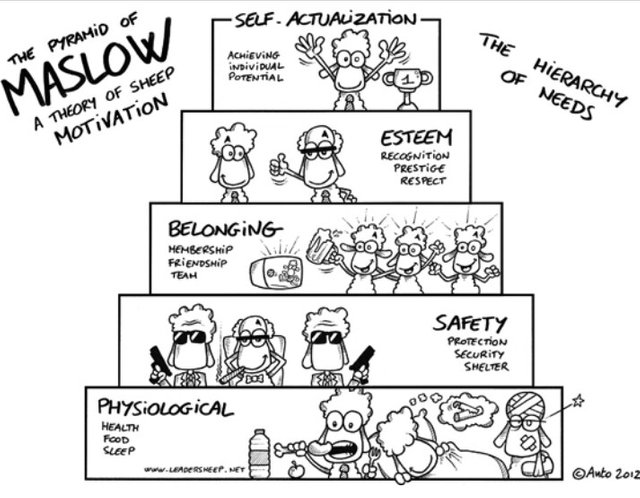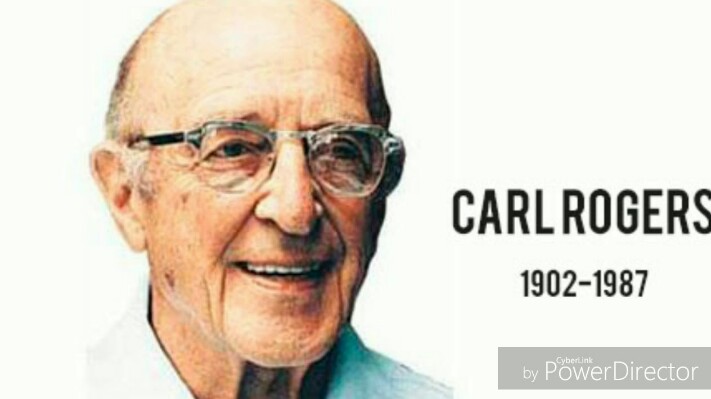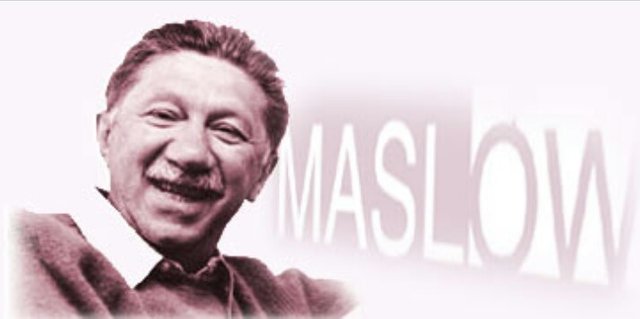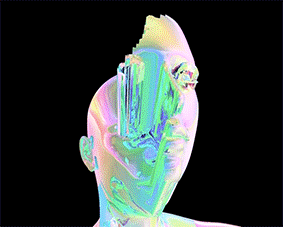Theories Of Personality Part 3: Humanistic Theory
In contrast to psychodynamic theory that I wrote about yesterday in part 2 of this series, humanistic theory argues that one has free will and is of one trait (self-concept) not three (id, ego and superego). Inherent in this theory is the idea of self realised hierarchical motivation which is discussed subsequently and the notion that human events have meaning such as purpose, awe, love, choice, value, spirituality and self-actualisation.

smartprimaryed.files.wordpress.com
Humanistic theory came about as a reaction to psychodynamic theory (which was seen as pessimistic in nature) and arose in the 1950s. Humanistic therapists endeavour to determine how people view themselves and experience the environment they live in.

youtube.com
Carl Rogers, being one of the theory’s founders, viewed personality structure as one trait or entity, this being self. Self is known more widely as self-concept which is how an individual sees themselves, their beliefs about their own nature, uniqueness and behaviours. The individual’s view of themselves may or may not be accurate. The view may be biased and inaccurately weighted for or against the individual. For example a person may think himself or herself to be emotionally stable, when from an external perspective he or she actually exhibits signs of emotional irrationality.
Rogers called this biased belief of self incongruence. If one has a belief that was in accordance with evidence or experiences, Rogers called this congruence. It is this structure of self-concept promoted by humanistic theory that creates one’s personality. Rogers realised that one’s childhood experience affected the congruence and incongruence structure thinking, but did not rule their adolescence as suggested by the psychodynamic theory.
Rogers’ belief was that all humans need to feel accepted and loved. In the beginning of one’s life this is satisfied mostly by the individual’s parents. Through experience, Rogers came to the belief that unconditional love (such as from an individual’s parents) cultivates congruence whilst conditional love cultivates incongruence. Following this self-concept, it is put forward that a person can learn and grow to maintain their own personality and behaviour structure; choosing not to be a pawn of the environment.

teambuilding.co.uk
Abraham Maslow followed in Rogers’s lead with self-concept saying that an individual has free will enabling him or her to learn and establish his or her own personal growth and personality. Maslow spoke out saying
it is as if Freud supplied us the sick half of psychology and we must now fill it out with the healthy half
It is emphasised that all individuals can change, work towards a healthy personality and live up to their potential, whereas Freud believed that not all individuals can. This growing of a healthy personality follows the process of a need structure. Maslow suggested that there are basic needs that a human must fulfil to have a healthy personality growth.
These needs are prioritised and usually portrayed in a pyramid which Maslow called the hierarchy of needs. Maslow recognised that the fundamental desirers of human begins are similar to Freud’s description but many are conscious in nature. In order to achieve growth, an individual will work his or her way up the pyramid traversing the sequence of prioritised needs. An unfulfilled lower need shows in ones thinking and actions until the need is met. Once this need is met or satisfied, one moves on to the next level which will in turn manifest itself in the life of the individual.
According to this premise, each need met or satisfied does not need to be satisfied perfectly but only reasonably well for one to feel content. The levels of needs are ordered from the most fundamental up to the more refined. It follows that the higher levels can only be acquired or indeed are only of interest once lower levels have been established or secured. Briefly, the first level is physiologic such as the need of food, water and air.
Secondly the needs such as safety, stability, protection, security and the freedom from fear.
The third level includes the needs of belonging and love; this is the giving and receiving action of affection.
The fourth level has the need for feeling self-esteem, which can be derived from successful integration into an individual’s surroundings.
At the last level one comes to the need for self-actualisation; attaining one’s unique potential in life.
Maslow describes the refined needs on the tip of the pyramid as growth needs or self-actualisation. The process of traversing the levels of needs satisfies 'the need to fulfil one’s potential’
LETS CONCLUDE AND COMPARE
In conclusion, the principles of psychodynamic and humanistic theory differ significantly. The former is based on the premise that human behaviour is largely unconscious and based on urges, impulses and instinct. Based on this view, a psychodynamic therapist may seek to address conflicts that arise internally between traits of an individual’s personality in order to avoid suffering. According to psychodynamic theory, an individual is not guaranteed to be capable of achieving happiness due to the pre-determined unconscious forces at work.
The latter theory is based on the premise that behaviour is driven by conscious and deliberate activity. A humanistic therapist will attempt to assess and understand human needs. According to this theory, anyone can achieve self-actuality and happiness by progressing through Maslow’s hierarchy of needs. This addresses the pessimistic standpoint adopted by psychodynamic theory.
I agree that anyone can achieve self-actuality and happiness through maslow's hierachy of needs.
I am also agree for this contest....
most people i have encountered with mental issues have a long history of being denied the low tiers maslow's hierarchy.
capitalism has a way of kneecaping you and then complaining you can't run fast enough, then blaming the failures of the entire system on you as the police chase you off the lawns of the 3rd houses of people born into so much wealth they never even have to work. Like the president for instance.
The psychodynamic theory of which you speak is madness, as if everything people do is simply arising out of them as if a priori. This is extremely convenient to our oppressors.
may be Something in physilogical..... somethiing related to the survival instinct
Wow! I'm excited to be discovering the series right now. Great summary of Maslow's hierarchy of needs. I'm also digging how you provide insights into its origins. I look forward to reading through the rest of the series.I'm sorry if you've already answered this in a previous entry, but how many parts do you plan on the series being?
Thanks again!
wonderful
:-)
After having read this, I think I would like to write a response article concerning why I think humanistic theory is wrong. I just want to give you notice in advance that my response will in no way reflect you, it'll just be a criticism of some of what I think are the larger mistakes in Humanistic Psychological theory.
Not to say Freudian psychodynamic theory is wholly correct. Personally, I think Jungian psychological theory is the most correct. It's just that, to me, humanistic theory is the most incorrect out of them all, and its idealistic, to boot (there is nothing that frightens me more than idealists).
Thank you, and again my response will in no way be directed towards you. If you have a problem with it, just leave a comment and I'll see what I can do.
Hi @horzymandias thanks for the thoughtful reply. I'm happy to have provoked thought and look forward to reading some of your ideas. Oh, and welcome to Steemit!
congratulations and success for your success .. hopefully long and healthy always .. and do not forget to post me too, so I stay in steemit.
i'm very interested in these topics, as a creative person, I feel i've always been on the path to actualisation and alienated for it, whenever i tried to fit in with family or friends somehow i'd always been treated as crazy by them, would have a break down and need to be on my own. I just joined steemit so maybe i can find a remote community here. i just wrote an intro, appreciate support and welcome from the community. check the intro here
